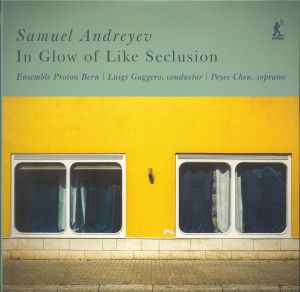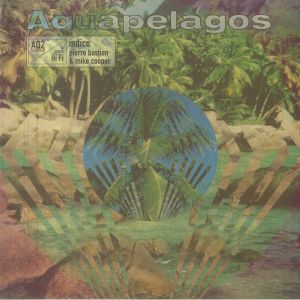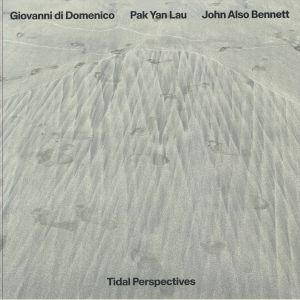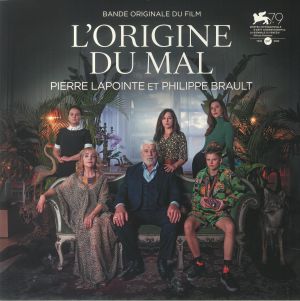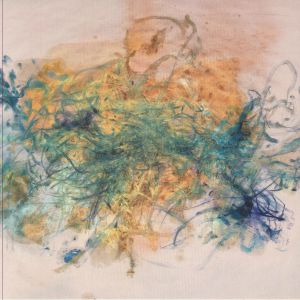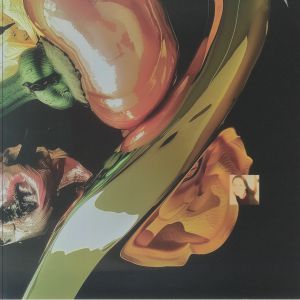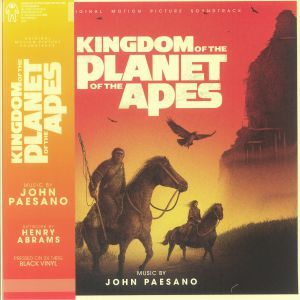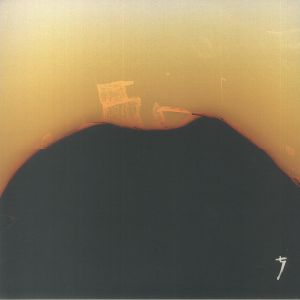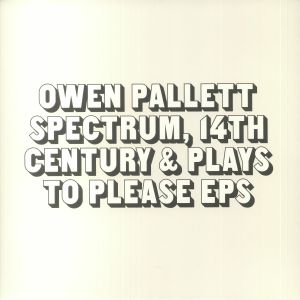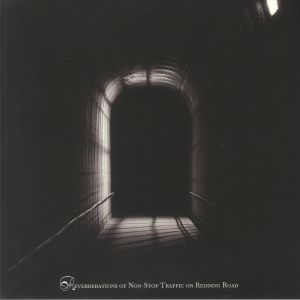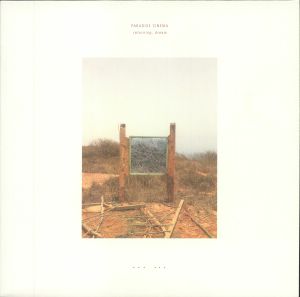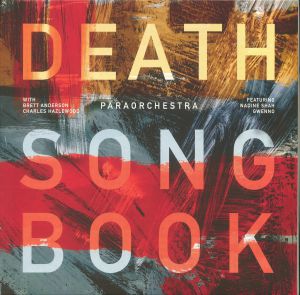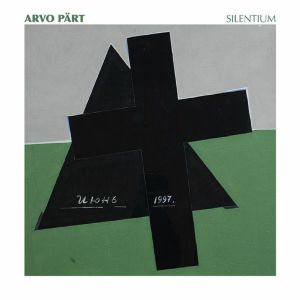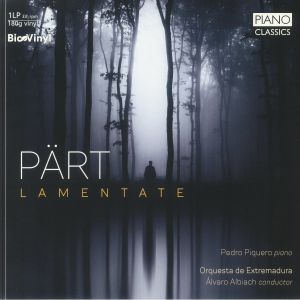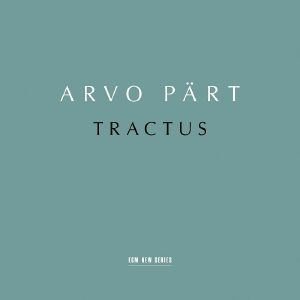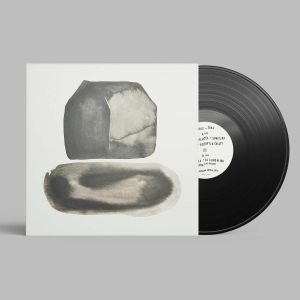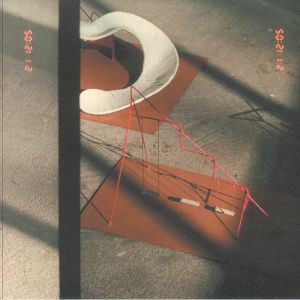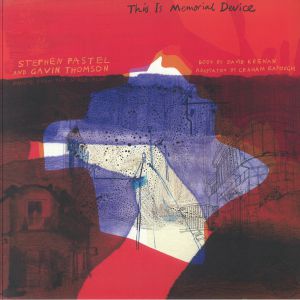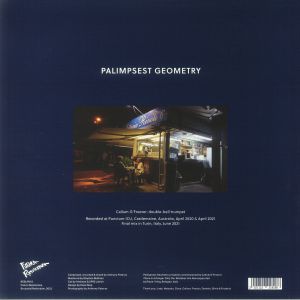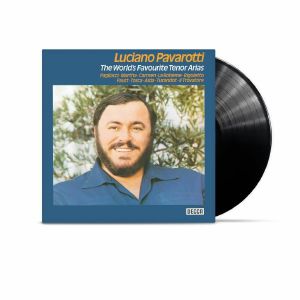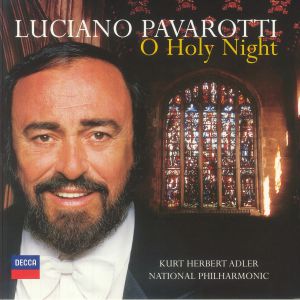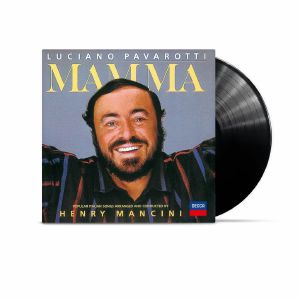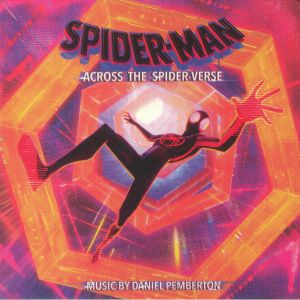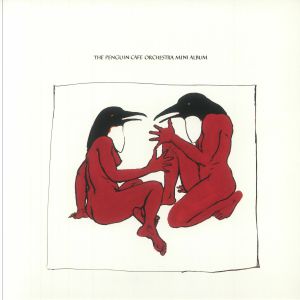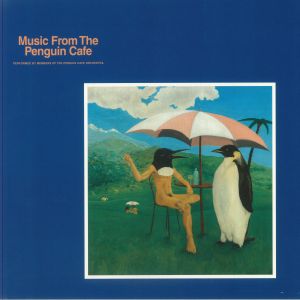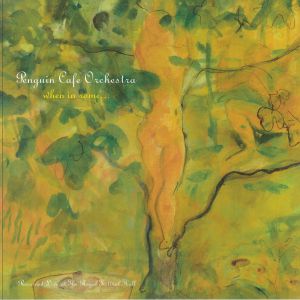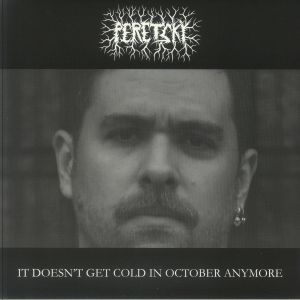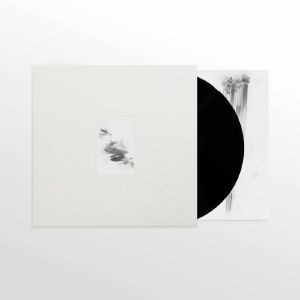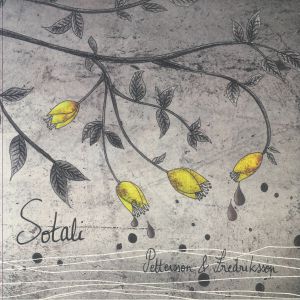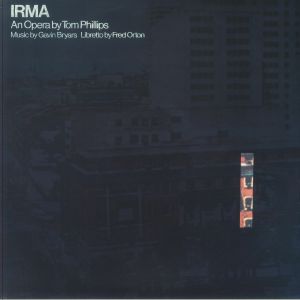Back catalogue: Modern Classical
Juno's full catalogue of Modern Classical
Álbumes
Visioni Fuggitive (gatefold LP + insert)
Cat: NSP 05. Rel: 03 Dec 24
in stock $40.32
In Glow Of Like Seclusion (gatefold 2xLP)
Cat: MEL 12402. Rel: 19 Feb 24
in stock $35.35
Cello Dreams: Lullabies For Cello & Piano (gatefold heavyweight vinyl LP)
Cat: HMM 332387. Rel: 26 Sep 24
in stock $21.57
Aquapelagos Vol 2 Indico (limited LP)
Cat: KRXN 026. Rel: 23 Jan 24
Review: Of all the seas in the world, the Indian Ocean is up there with those that invoke the greatest sense of mystery. Filling the rather big bit between East Africa, South East Asia, Australia and Oceana, it's a vast expanse of water known for deceptively dangerous paradise islands, political uncertainty, incredible natural beauty and a somewhat wild west (or east?) seafaring culture. It's a place that feels far less familiar to us here in Britain even than the Pacific, and as such a record that looks to interpret cultures and scenes from this watery region is always going to be intriguing. This is the second thematic volume in the Aquapelagos series, split LPs that focus on societies surrounded by waves, and the communities therein. Mike Cooper and Pierre Bastien's interpretation of the Indian Ocean is mesmerising, and often sounds isolated, hypnotic noises ebbing and flowing, distant calls, percussive details, 'atmos' of bird sounds, oscillations, high pitched feedback. A place that is serene and yet disturbed, often by distinctly human elements.
… Read more in stock $24.64
Tidal Perspectives (LP limited to 300 copies)
Cat: EBS 2008LP. Rel: 28 Jun 24
Intérprete: Juno Records Staff Picks
in stock $28.57
Cello Concertos (gatefold LP)
Cat: LPA 68077. Rel: 13 Mar 25
in stock $21.85
Cat: MILF 87532111. Rel: 14 Dec 22
in stock $29.12
The Sport Of Love (LP + MP3 download code)
Cat: PAN 134. Rel: 25 Jul 24
in stock $28.85
Dorfromantik (Soundtrack) (gatefold yellow & sky blue vinyl 2xLP)
Cat: BSR 132. Rel: 10 Jun 25
in stock $44.81
Review: Michaelangelo Antonioni's name will always be synonymous with incredibly beautiful cinema, even if those movies can be challenging at times. Pablo's Eye takes some inspiration from the visceral aesthetic qualities that defined many of the great auteur's work, and then distills this into soundscapes that are uniquely spectacular, deceptively polished and yet effortless and raw. Whether you'd really call this ambient is a question for another time and another place - The List Was Sharp Our Eyes Were Open certainly creates ambience. We might be cast adrift on a small dingy, the peril of being stranded in the ocean subsiding into a strange sense of calm and quiet, motifs and tracks passing by like island in the endless blue. But when getting lost feels this good, who needs saving?
… Read moreIntérprete: Alexis Le-Tan, Juno Recommends Ambient/Drone
in stock $32.78
Kingdom Of The Planet Of The Apes (Soundtrack) (gatefold 2xLP + insert with obi-strip)
Cat: MBM 18LP. Rel: 27 Sep 24
in stock $47.26
Aspect Of What (clear black & red splattered vinyl LP limited to 200 copies in spot-varnished sleeve)
Cat: MAP 049LP. Rel: 17 Oct 24
in stock $27.17
Niccolo PAGANINI / MARIA DUENAS / VARIOUS
Paganini's Iconic 24 Caprices (gatefold 2xLP + CD + insert)
Cat: 486571 1. Rel: 06 Mar 25
in stock $39.50
Cat: 502173 2396242. Rel: 31 Oct 24
in stock $25.21
Intérprete: Kisk
in stock $27.45
in stock $26.88
in stock $26.88
Reverberations Of Non Stop Traffic On Redding Road (clear vinyl LP + MP3 download code)
Cat: SHIMMY 2022LPC1. Rel: 21 Mar 24
Review: "I would beg listeners both animal and human to allow these beautiful landscapes I've created in collaboration with Mark Nelson to sing and speak and weep for themselves. Please. Forget about words. Just LISTEN," says Kramer of this latest exploration of sounds less familiar. Meanwhile, Nelson quotes the legendary Arthur Russell for his take on things: "If I could convince you these are words of love, the heartache would remain but the pain would be gone". The Chicago-based composer and performer certainly summarises this listening experience. There's pure bliss running through these serene ambient, almost New Age-style tracks, but within that a certain reflective sadness. Crystalline melodies refract and develop, ebb and flow, at times making pure harmonies, in other moments more atmospheric refrains. They make us long for things that were or may be, although there's still space here for taking stock and acknowledging what is.
… Read moreIntérprete: Juno Recommends Ambient/Drone
in stock $32.48
in stock $26.88
Spaces (clear vinyl LP + insert + MP3 download code)
Cat: LP 25302. Rel: 24 Apr 23
in stock $31.37
Death Songbook (gatefold 2xLP)
Cat: 4050538 978018. Rel: 18 Apr 24
in stock $32.78
in stock $25.49
The Abyss (limited "pool party" transluscent blue multicoloured splattered vinyl LP)
Cat: BAY 141VX. Rel: 19 Sep 24
in stock $28.85
Heart & Breath: Rhythm & Tone Fields (hand-numbered cream & red galaxy vinyl LP with obi-strip limited to 300 copies)
Cat: VMP 2356LP. Rel: 27 Mar 25
in stock $37.26
Review: Arvo Part stands as one of the most influential composers of the 20th and 21st centuries, pioneering the "holy minimalism" movement with a sound that is both stark and transcendent. Emerging from Soviet-occupied Estonia, his early experiments in serialism gave way to a deeply spiritual style influenced by Gregorian chant and Orthodox choral traditions. His self-developed tintinnabuli technique, marked by bell-like harmonies and spacious phrasing, has made his work beloved across classical and contemporary circles. This collection highlights Part's signature meditative depth. At its core is a never-before-released version of 'Silentium,' performed by Boston's A Far Cry at an unhurried pace, stretching the piece's time-suspending qualities to their limit. The album also includes the warm yet solemn 'Vater Unser,' the introspective piano piece 'Variationen zur Gesundung von Arinuschka,' and a stirring interpretation of 'Fratres for Strings and Percussion.' Each piece reflects Part's belief in music as a form of prayeriunspoken, yet profoundly resonant.
… Read more in stock $26.06
in stock $36.96
Lamentate (gatefold 180 gram bio vinyl LP)
Cat: PCL 10292. Rel: 11 Apr 24
in stock $28.01
Arvo PART / TONU KALJUSTE / MARIA LISTRA / ESTONIAN PHILHARMONIC CHAMBER CHOIR / TALLINN CHAMBER ORCHESTRA
Tractus (2xLP + booklet)
Cat: 485916 7. Rel: 22 Apr 25
Review: In celebration of Arvo Part's 90th year, his latest release showcases the Estonian composer's continued exploration of minimalist, spiritually charged sound . Part's work has always sought to blend the sacred with the secular, and this collection of new renditions brings forward the timeless resonance of his choral and orchestral compositions. Opening with 'Littlemore Tractus,' based on John Henry Newman's reflections, the piece sets the tone of quiet, introspective change that permeates the entire work. His music, a dialogue between sound and silence, invites profound contemplation, with the Tallinn Chamber Orchestra and the Estonian Philharmonic Chamber Choir under Tonu Kaljuste's direction offering nuanced, deeply attentive performances. Compositions like 'Vater unser,' showcase Part's ability to transform liturgical text into transcendent musical experience. There's an undeniable spiritual gravity in pieces such as 'Cantique des degres' and 'Sequentia,' where strings and vocals weave in delicate yet forceful patterns, revealing a steady undercurrent of renewal. The rich textures in these works evoke both a longing for and a reconciliation with the past, capturing Part's life-long exploration of sacred music's dialogue with the world. The album culminates with 'Vater unser,' an evocative reworking that brings together choir, strings, and piano, offering a meditative close to an album that is as much about reflection as it is about the continued forward momentum of Part's artistry. Recorded in Tallinn's Methodist Church, this latest chapter is a continuation of the Part-Eicher partnership that has defined so much of his career, expanding the legacy of albums like Tabula rasa and reinforcing Part's place as one of the most significant voices in contemporary classical music of the 20th and 21st centuries.
… Read more in stock $44.54
Review: Parus is a Belarusian ethno-ambient project blending pagan songs with modern soundscapes and Zara is their debut album. Led by ethnographer and folk singer Hanna Silivonchyk, the record features traditional Belarusian songs in various dialects, all accompanied by synths and field recordings crafted by Anton Anishchanka. The tracks were gathered during ethnographic expeditions across Belarusian national parks, and songs like 'Soniejka' and the title cut offer intimate reflections on life, love and mythology. It connects to the past while maintaining a deep personal edge that makes Zara a fascinating exploration of Belarusian culture.
… Read more in stock $25.21
Snow White (Soundtrack) (gatefold apple red vinyl LP + booklet)
Cat: DSN 1690241. Rel: 11 Jun 25
in stock $38.09
Radio Yugawara (clear vinyl LP)
Cat: TU 007LR. Rel: 27 Jan 25
in stock $27.74
This Is Memorial Device (Soundtrack) (LP + booklet + MP3 download code)
Cat: GEOG 56LP. Rel: 27 Jun 24
Review: The soundtrack to Graham Eatough's stage adaptation of David Keenan's novel, This Is Memorial Device, composed by Stephen Pastel - of Kurt Cobain faves The Pastels fame - and Gavin Thomson, offers a compelling third iteration of the book's myth. Fusing reworked home recordings from the era with expanded versions of music originally scored for the theatre production, the album captures the essence of Glasgow's post-punk scene from 1978 to 1986. Tracks like 'Introduction To Why I Did It' and 'We Have Sex' evoke a sense of youthful hope and creativity, reflecting the play's exploration of art, music, and romance in small-town Scotland. Directed by Julian House, the video for 'We Have Sex' adds a vibrant visual dimension to the DIY aesthetic of the era. This Is Memorial Device: Music from the Stage Play not only complements the book and stage adaptation but also stands on its own torch for the spirit of post-punk and the power of belief in the transformative potential of art.
… Read more in stock $26.88
in stock $26.33
Reise Der Schatten (Soundtrack) (LP + MP3 download code)
Cat: HG 2502. Rel: 01 May 25
in stock $22.13
The World's Favourite Tenor Arias (limited 180 gram vinyl LP + booklet)
Cat: 487092 7. Rel: 24 Apr 25
in stock $33.60
in stock $37.82
Mamma (limited 180 gram vinyl LP + booklet)
Cat: 487092 9. Rel: 24 Apr 25
in stock $33.60
Spider Man: Across The Spider Verse (The Anomaly Edition) (limited gatefold white & purple marbled vinyl 2xLP + inserts)
Cat: 196588 247811. Rel: 24 Nov 23
Review: If its predecessor shook up the formula for what a superhero animation could be, Spiderman: Across The Spider Verse blew the game wide open in a dazzling display of shape-shifting visual style, heartfelt narrative and spellbinding action. Daniel Pemberton returned to the project to score the sequel and as he explained to Rolling Stone he followed the versatile approach to animation as a guide for how he composed the music. From archaic medieval bombast to grunge inspired squall on to the synthetic sheen of techno, the soundtrack is as wild a ride as the world-flipping action in the film.
… Read more in stock $52.38
Broadcasting From Home (reissue) (white vinyl LP)
Cat: INTGDS 00016LP. Rel: 12 Dec 24
in stock $28.57
The Penguin Cafe Orchestra Mini Album (red vinyl LP)
Cat: INTGDS 00015LP. Rel: 12 Dec 24
in stock $28.57
Music From The Penguin Cafe (remastered) (blue vinyl LP)
Cat: INTGDS 00013LP. Rel: 12 Dec 24
Review: Penguin Cafe Orchestra's debut release offers a unique blend of minimalist classical, folk, and avant-garde influences, with a distinct, whimsical charm. Opening with the iconic 'Penguin Cafe Single,' the track immediately sets the tone with its playful melody and intricate arrangements. 'The Sound of Someone You Love Who's Going Away and It Doesn't Matter' follows with a more reflective mood, its wistful theme evoking a deep sense of longing. The album's blend of simple, yet profound compositions showcases Simon Jeffes' ability to evoke powerful emotions with minimal means. This blue vinyl reissue brings a fresh vibrancy to a seminal album that continues to captivate listeners with its otherworldly sound.
… Read more in stock $28.57
Penguin Cafe Orchestra (remastered) (apricot vinyl LP)
Cat: INTGDS 00014LP. Rel: 12 Dec 24
in stock $28.57
Signs Of Life (reissue) (translucent orange vinyl LP)
Cat: INTGDS 00017LP. Rel: 12 Dec 24
in stock $28.57
in stock $38.37
Acts Of Love/To Our Other Selves (gatefold 2xLP + booklets)
Cat: OLI 7. Rel: 21 Sep 23
in stock $35.90
in stock $26.06
The Air Outside Feels Crazy Right Now (LP in embossed sleeve)
Cat: ASM 08LP. Rel: 04 Apr 25
Review: Perila returns with a reflective spiritual successor to her 2022 album that comes on Vaagner's sister label A Sunken Mall. The album takes in eight tracks produced between 2021 and 2023 and they all do a fine job of conveying a serene vulnerability with its drifting, ethereal soundscapes smeared with echoing voices, droning guitars and resonant textures. It's like a whispered conversation during quiet moments and once again makes for a world that doesn't need to be understood, only felt. The Air Outside Feels Crazy Right Now reminds us that finding inner peace through music can counter the chaos of the external world and help turn fragility into strength.
… Read moreIntérprete: Alexis Le-Tan, Juno Recommends Ambient/Drone
in stock $40.32
in stock $20.45
Cat: DIALP 934. Rel: 20 Mar 25
in stock $29.12

 USD
USD






